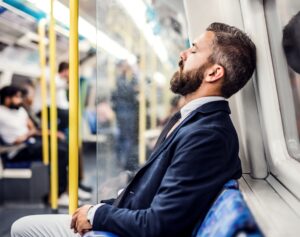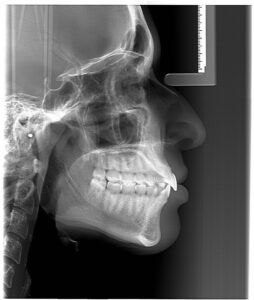
Here’s an important “wake up call” for every individual…
A 2022 report published by the National Heart, Lung & Blood Institute shared that an estimated 50 to 70 million Americans have chronic, or ongoing, sleep disorders with nearly 40% of U.S. adults admit to falling asleep during the day without meaning to occurring at least once a month.
Just how concerned should you be that you are not getting sufficient sleep?
• Sleep deficiency can lead to physical and mental health problems, injuries, loss of productivity, and even a greater likelihood of death.
• Sleep deficiency can interfere with work, school, driving, and social functioning. Insufficient sleep can decrease one’s ability to learn, focus, and their reaction times.
• Sleep deficiency can affect mood, causing you to become easily frustrated, short-tempered, or overly-worried.
• Children who are sleep deficient can be overly active, have problems paying attention and misbehave. Performance in school performance can decline.
• Sleep deficiency has been linked to many chronic health problems, including heart disease, kidney disease, high blood pressure, diabetes, stroke, obesity, and depression. Recent studies (reported in the Journal of Alzheimer’s Disease) link severe obstructive sleep apnea (OSA) to an increased risk of dementia.
• Sleep deficiency increases the risk of injury such as falls and, when driving, having auto accidents. According to an article in Science Daily, An estimated 7% of ALL motor vehicle crashes in the U.S. and 16% of FATAL crashes involve driver drowsiness.
• In addition to motor vehicle accidents, sleep deficiency has played a role in tragic accidents, such as nuclear reactor meltdowns and plane crashes.
• Loss of sound sleep has also been associated with weight gain and obesity, depression, and reduced motivation.
There are several reasons that adults fail to get sufficient sleep (even when they assume they do). These include:
– You simply don’t get enough uninterrupted sleep on a consistent basis.
– You sleep at the wrong time of day.
– You don’t sleep well due to health or breathing problems.
– You have a sleep disorder that prevents you from getting enough sleep or causes poor-quality sleep.
While snoring on its own is not considered “dangerous,” heavy snoring can be a warning sign of sleep apnea. Statistics on snoring in the U.S. are concerning.
While about 59% of snorers admitting that they (habitually) snore, approximately 40% of men and 24% of women have been found to do so.
In addition to its association with sleep apnea, loud snoring can be devastating to a relationship. Snoring is the third leading cause of divorce in the U.S. with 18% of sleep partners citing snoring is the foundation of regular arguments in their relationship. About 30% of these partners have taken to sleeping in a separate room.
Sleep apnea occurs when air intake is paused with pauses that can occur up to a hundred times per night. Some of these pauses can last up to a minute each. Without a sufficient supply of oxygen to the brain and heart, health problems develop.
Common symptoms of sleep apnea include daytime fatigue, lack of alertness, reduced energy, nodding off easily (even when driving or at stoplights), feeling hungry more often, and being more accident prone.
The goal is early diagnosis, yet, many people write their symptoms off to stress, a bad mattress, or to heavy snoring (their own or a partner’s). This often means the apnea episodes worsen.
Diagnosis in the U.S. has been challenging. When sleep apnea is suspected, it is the dread of the perceived diagnosis process that is a deterrent. Many assume the process will require an overnight stay at a sleep center, being hooked up to a barrage of wires and cords. However, in cases where mild to moderate apnea is suspected, an at-home sleep study is effective for most people.
The at-home sleep studies are shipped right to your home with instructions that are easy to follow. After a night’s monitoring of your sleep patterns, return shipment is easy. Results are read by qualified sleep physicians and diagnosis is provided fairly promptly.
Then, there is the dread of sleep apnea therapy. For some, they anticipate having to sleep in a CPAP device. These typically consist of a mask with an attached hose that is connected to a fan. The fan pushes air through the hose and into the airway passages. However, compliance of wearing sleep apnea devices is low due to patient complaints.
The complaints are often the same: noisy, confining, inconvenient for travel, bulky, and embarrassing. To no surprise, compliance is not high, estimated at about 22%. Although some models are better than others at reducing these frustrations, a CPAP may be avoided altogether, in many cases.
For those who have sleep apnea that registers as mild to moderate, it may not be necessary to struggle through the challenges of wearing a C-PAP device.
As a neuromuscular dentist in Shelby Township MI, I’ve incorporated some of the most advanced technology available in dentistry to optimize proper diagnosis. If sleep apnea is revealed through your study, we can assess the most conservative treatment possible to help you regain restful sleep.
In our Shelby Township dental office, we have specially-trained staff who oversee the diagnosis process using highly advanced technology specifically designed to reveal the intricate details that affect airway passages.
For example, our Cone Beam 3D imaging provides an advanced system that captures clear, concise and amazing views at the lowest radiation levels possible. In one pass around the patient, cone beam images are used for:
• ideal assessment of the jaws (for dental implant placement)
• evaluation of the temporomandibular joints (TMJ)
• review of airway passages
• views of bone structure damage or bone loss
Through these images, we are able to provide the most conservative, yet effective, treatment possible.
As a neuromuscular dentist, I incorporate total considerations which include bone structure, joint position/movement, muscles, bite forces, tongue and palate shape, and airway passages.
For patients who have sleep apnea, we offer an FDA-approved method to restore sufficient oxygen during sleep without the bulk, noise, confinement and awkwardness of CPAP devices. By sleeping with a custom-designed oral appliance, the need for wearing CPAP is eliminated. These oral appliances are small, comfortable, and won’t interfere with your ability to sleep soundly. They are effective for many who suffer with Sleep Apnea as well as those who are heavy snorers.
Through oral appliance therapy, there is no noise, no inability to move comfortably in bed, no awkward machines to pack for travel, are easy to clean, and they pop in and out of the mouth easily. Best of all, restful sleep is restored without surgery or extended treatments.
Once oral appliance therapy begins, we also work with patients during treatment to help them maximize their sleep quality. In addition to having a restored ability to breathe throughout sleep time, the temperature of the room, humidity and bed and pillow height are just some factors that can impact an ideal level of sleep. Download helpful Sleep Tips at: Sleep Tips by Dr. Barbat
If you suspect you have, sleep apnea, begin by visiting: https://www.banrbarbatdds.com/sleep-apnea-snoring/
For a no-charge consultation, call our Shelby Township dental office at: 586-739-2155 or tap here to begin.
And, please get to know our office through a brief video tour: DrBarbatOfficeTour
Sources:
https://www.sleepfoundation.org/snoring
https://www.newsweek.com/amplify/why-snoring-might-ruining-your-relationship-what-do-about-it
https://www.sciencedaily.com/releases/2018/09/180918082041.htm
https://www.dementia.org/what-is-dementia
https://www.sciencedaily.com/releases/2020/11/201111104918.htm